Harvard Business School Grad Salaries Jump Again
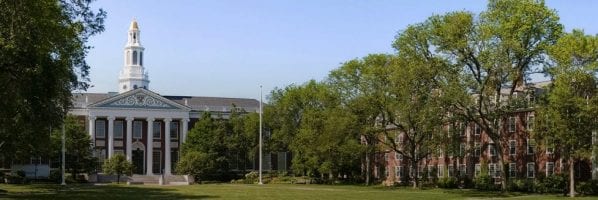
Harvard Business School (HBS) is the latest top business school to publish its employment stats for its most recent graduates. What are the top takeaways? Try starting salaries exceeding $160,000.
This year’s median base pay, $140,000, is up $5,000 over last year. In addition, 65 percent of the class earned median sign-on bonuses of another $25,000. There were also other upticks, with 14 percent of students reporting median guaranteed first-year comp of $28,500, up from 13 percent and $25,000 the year before.

Within three months of graduating, 95 percent of the class reported receiving at least one job offer, and 89 percent had accepted an offer. These stats were both unchanged year over year. When there’s a gap between the percentage of students reporting offers those accepting offers—as with these latest HBS grads—it’s often considered to be the reflection of a strong job market. Under these circumstances, graduates from the very top schools can bide their time and hold out for the offer that really wows them.
Financial Services, Consulting, Tech Vie for HBS Grads
In terms of industry, three dominate when it comes to hiring the latest HBS grads. Financial services drew the largest slice of the class—29 percent—which is off from 31 percent last year but on par with the year before that.
Consulting took another quarter of the class, 25 percent, up from 23 percent last year. Technology, meanwhile, beckoned to roughly a fifth of the class—19 percent, up from 16 percent last year. Other industries saw small shifts year over year of one or two percentage points.
More Students Join Startups
HBS changed its definition of a startup this year in terms of how it tracks employment data. Startups now refer to organizations that are still private and, at most, 10-years old. By this measure, HBS grads who opted to join a startup straight out of school make up 9 percent of the class, as compared to 8 percent last year. The median starting salary for graduates going into tech is $130,000—the same as last year. Half of the startups where students landed are in the technology space, up from 45 percent a year earlier. Other top industries for startups include manufacturing (13 percent), financial services (12 percent) and consumer products (6 percent).
Another 70 students in the Class of 2018—8 percent—founded their own startups. That’s up from 64 last year. Of this year’s new ventures, 28 have a social impact focus, up from 16 last year.
HBS Class of 2019 Internships
HBS also released employment data for the summer internships pursued by students in the Class of 2019, revealing a median base salary of $7,800, down $200 year over year. More students, 89 percent, sought internships this past year, up from 87 percent the year before.
More students in this most recent class pursued internships with financial services firms, 32 percent as compared to 26 percent of the class before. Meanwhile, slightly fewer students pursued internships in technology and consulting. Tech firms drew 18 percent of the class for internships, down from 20 percent the year before. Consulting interns made up another 15 percent, down one percentage point from the year before.
This article has been edited and republished with permissions from Clear Admit.
What are the Most Successful MBA Startups of 2018?

Earlier this month, LinkedIn released its 2018 list for the Top Startups in the U.S. The list includes 50 of the newest successful startups in the U.S. Most specifically, the list analyzes young companies that are experiencing exceptional employee growth, increasing interest, member engagement, and talent. The social media platform used its network of 575 million members to see which startups commanded the most attention and had the most top talent. To be eligible, startups need to be less than seven years old, have at least 50 employees, and be privately held and headquartered in the U.S.
We decided to take a look at the list and see which of these year’s startups were founded by an MBA. This list is by no means exhaustive, but quickly we were able to find founders and CEOs with MBAs from top universities such as USC Marshall, Wharton, Harvard Business School, and Columbia Business School. Continue reading…
Northwestern Research Finds Secret to Hot Streaks, and More – Chicago News

Let’s explore some of the most interesting stories that have emerged from Chicago business schools this week.
When You’re Hot, You’re Hot: Career Successes Come in Clusters – Kellogg Insights
In a new Nature paper, Northwestern Kellogg Associate Professor of Management and Organizations Dashun Wang and his co-horts reviewed the “career histories of thousands of scientists, artists, and film directors [and] found evidence that ‘hot-streak’ periods,” in which professionals seem to stumble upon major discoveries, “are both real and ubiquitous, with virtually everyone experiencing one at some point in their career.”
Wang, along with visiting student Lu Liu, Kellogg post-doctoral student Yang Wang, the University of Miami’s Chaoming Song, Central European University’s Roberta Sinatra, and Penn State’s Lee Giles, discovered that their findings “shed important new light on the patterns underlying success in all fields, and could be used to improve decisions about tenure, promotions, and hiring.”
You can read more about the group’s research here.
From Croatia’s World Cup Run to the Marketing Classroom – Quinlan School of Business Blog
Loyola Quinlan Clinical Professor of Marketing Katherine Sredl, who happens to be Croatian, heralded the “indescribable joy and pride” Croatians worldwide felt for the World Cup’s second-best team, due in large part to “the country’s small size and the strength of our competition.”
Professor Sredl explains that the pride she and her fellow Croatians feel for their country motivates her to “tell the stories of the people of the region, from the most to the least powerful and those in-between, women who worked in factories and are now unemployed, men who fought in the war and are now working to sustain peace.”
She adds that she hopes to serve the Bosnian, Croatian, Serbian students at Quinlan “by showing them that they can take that “Indescribable” feeling they might have—be it about the place they love or anything else — and reflect on how they can use it to “Go forth and set the world on fire,” as St. Ignatius inspired us and as we say at Loyola.”
Notre Dame IDEA Center Launches 27 Startups in First Year of Operation – Mendoza Ideas & News
The University of Notre Dame Mendoza College of Business announced that between July 2017 and June 2018, its IDEA Center launched 27 startups, 11 of which directly involve Mendoza students or alum.
The startups run the gamut industries, from health care to information technology, law, and media. The startups collectively “raised more than $4 million in investments or grants, created 83 new jobs, launched 23 products, and generated more than $500,000 in sales.”
The IDEA Center’s mission is to “build an ecosystem of high-potential startups in the South Bend-Elkhart region that grow rapidly and then attract venture capital, entrepreneurs and an increasing number of startups that create more jobs, all in a virtuous cycle of economic development.” Bryan Ritchie, Associate Provost and Vice President for Innovation, elaborates:
“The success of the IDEA Center’s strategy indicates that a strong focus on startups in the South Bend-Elkhart region will lead to the potential for significant economic growth, such as that seen in other technological hub cities in the country. In time, we believe this region will retain and attract even more of tomorrow’s brightest, most innovative minds.”
You can check out more about the IDEA Center here.
U. Chicago and Northwestern Deadlines, and More – Chicago News

Let’s explore some of the most interesting stories that have emerged from Chicago business schools this week.
University of Chicago and Northwestern University Reveal 2018-19 MBA Deadlines – MetroMBA
Both of Chicago’s top-tier business schools—Chicago Booth and Northwestern Kellogg—have announced deadlines for the upcoming MBA application season, starting this fall and extending into April of 2019.

Northwestern Kellogg MBA deadlines for 2018-19 begin Sep. 19, 2018 / Photo via northwestern.edu
How Superstition Changes the Way We Make Decisions – Kellogg Insight
Northwestern University Kellogg School of Management professors of marketing Ping Dong and Aparna Labroo recently published new research that explored the impact of superstitious actions on everyday decisions in an edition of Kellogg Insight.
According to the article, they were specifically interested in understanding how they “changed the way we calculate our odds of success or failure when deciding whether to do something risky.”
Labroo uses their study as an opportunity to suck the metaphysical life out of superstitious actions: “We can think about all kinds of good things happening and all kinds of bad things happening, but thinking about the probability and trying to compute expected value is less natural. It takes a little more effort.”
You can check out the full article here.
Could Walk-In Clinics Ease the Opioid Crisis? – Booth Chicago News
New York physician and psychiatrist Dr. Tamir Aldad was frustrated by the “boomerang” effect he experienced with the opioid addicts he treated for “substance use disorder, depression, bipolar disorder, post-traumatic stress disorder, or potential risk of self-harm,” who returned to the “ER in a couple of weeks with the same or worse problem than they came in for in the first place.”
After Dr. Aldad enrolled in Chicago Booth’s Executive MBA program, he launched the Mindful Urgent Care startup, a “walk-in psychiatric clinic designed to … increase mental health access and speed quality and affordable treatment to a population of patients with unmet needs.” Dr. Aldad and his teammates placed first in Booth’s Global New Venture Challenge this past April.
Aldad writes, “In value-based care, patient outcomes really matter. What we are seeing now is that patients in mental health are costing more and more. If a patient winds up in a hospital because they couldn’t get in to their doctor’s office or have a medication refilled, the healthcare costs escalate. We have an opioid crisis, and we have to proactively work to find ways to prevent mental illness from getting worse.”
Read more about Aldad’s experience in the Booth EMBA program here.
Quinlan Alum Leads Through Service – Quinlan School of Business Blog
The Quinlan School of Business at Chicago’s Loyola University recently interviewed alum Illiana Alvarenga BBA ’14, BA ’14 about Quinlan prepared her for a multi-faceted career path that includes a healthy dose of service and service leadership as part of her position as the Chicago chair of UNICEF’s Next Generation Initiative.
“It was at Loyola that I strengthened my love for giving back. For me, Quinlan strengthened a foundation of being strategic, but also encouraged us to always keep in mind what’s good for our communities,” Alvarenga writes.
This year Alvarenga traveled to South Africa with UNICEF to figure out how they “can leverage technology to help with programs to stop illness through increased handwashing, help girls excel in STEM-based careers, and more.”
Alvarenga also works as a competitive intelligence senior associate at JP Morgan Chase, where she focuses on “supporting the business in understanding emerging consumer behavior trends, the changing payments landscape, digital and mobile initiatives in financial services, and new developments in financial technology.”
You can read the full Quinlan interview here.
Healthcare Tech Teams Dominate 2018 Wharton Startup Challenge
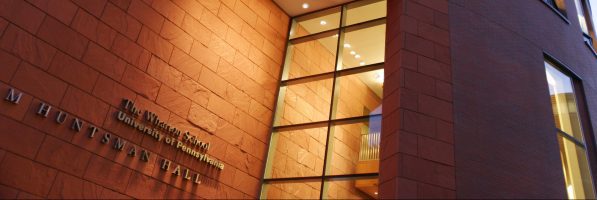
Just a few weeks ago, the University of Pennsylvania’s Wharton School held the 2018 Wharton Startup Challenge, which awarded cash prizes to outstanding student entrepreneurs whose startups all have the potential to become “the next big thing.”
Billed as the school’s most significant entrepreneurship event of the year, the Wharton Startup Challenge saw 27 semifinalist teams compete for $135,000 in cash prizes.
Eight teams made it to the finals on April 27, where their ideas were assessed by six top-level executives from companies including Joor, Karlin Asset Management, the Charian Group, Monetate, Examworks, and Orasure.
The judges were asked to evaluate each team based on varied criteria, which included the quality of the idea, product, or service; how prepared the team was for launch; and their execution plan.
Wharton Startup Challenge Winners
Sanguis
Sanguis, an at-home blood cell counting device for chemotherapy patients, took home the $35,000 grand prize, along with $15,000 in legal, accounting, and strategy services.
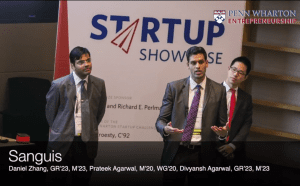
Dubbed “a medical device dream team,” Sanguis’ Daniel Zhang, Prateer Agarwal, and Diyanish Agarwal are close friends who met as first-year medical school students. Their device measures neutrophil levels, which are the human body’s primary method of fighting infection. Patients can use Sanguis to track their neutrophil levels themselves and contact their doctors immediately with any potential problems.
On the decision to focus on this issue, the Sanguis team points to harsh statistics that 400,000 cancer patients will suffer from low neutrophil levels during their chemotherapy treatment each year. They are especially passionate about the device’s potential to reach underserved regions, citing the team’s Indian heritage as a personal connection. “It’s especially important to us…Sanguis could be a huge game-changer.”
MD Ally
Second prize and the competition $10,000 “Innovation Award” were both awarded to MD Ally, an emergency tele-medicine company designed to allow 911 dispatchers to instantly access ER physicians for non-emergency calls.
MD Ally “moves up the clock” of emergency care and ultimately “drives savings for patients, payers, and municipalities” by reducing non-emergency use of ER physicians and resources. Randy Findley and Shanel Fields, both of whom work in healthcare technology, developed the idea. The duo is acutely aware of the industry’s technological limitations “that prevent first-responders from delivering the best and most timely care.”
Strella Biotechnology
Strella Biotechnology took home three different awards—the Social Impact Prize ($10,000), the Michelson People’s Choice Award ($3,000), and the Crowd Favorite Award. Strella left an impression with its presentation of a biosensing platform that predicts the ripeness of fruit and reduces “food spoilage and waste in the supply chain.”
The product allows for ripeness monitoring while food is in storage so businesses can “always locate the readiest product for their customers.” Strella’s team pointed to statistics that demonstrate how almost a third of all food in the world is wasted or spoiled before it can be eaten. Strella hopes its services can work directly to fight global hunger.
Avisi Technologies
Finally, the third prize of $10,000 was awarded to Avisi Technologies, whose VisiPlate is “a nanoscale defense against blindness from glaucoma.”
The VisiPlate is a “nanoscale drainage implant” used to fight glaucoma and mitigate a wide spectrum of treatment issues, including “post-operative double vision, excessive scar tissue, patient discomfort, tissue erosion, and bleb failure.”
Prior to the competition, the Avisi team made a point to highlight the many resources Wharton makes available to its student entrepreneurs. Team leader Rui Jing, a finance and strategic management specialist who spoke enthusiastically about Wharton, perfectly encapsulated the mood of this year’s competition: “We see this as a great opportunity to leverage resources at the university to do something impactful.”
This article has been edited and republished with permissions from our sister site, Clear Admit.
Starting a Business Straight Out of School? How HBS Supports Student Entrepreneurship
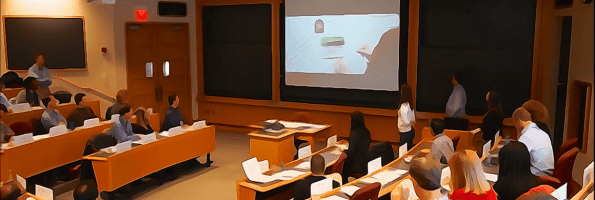
This coming weekend, Harvard Business School (HBS) will host an annual Entrepreneurship Conference sponsored by its own homegrown Entrepreneurship Club. The conference brings together hundreds of participants including “founders, joiners, and venture capitalists,” all of whom hope to connect through a smorgasbord of lectures, panels, chats, and networking sessions.
This year’s conference, scheduled for Saturday, March 31, is expected to draw more than 500 participants, including many top professors and professionals holding court on a variety of topics. Three keynote lectures will be given by CEOs and founders from Catalant Technologies, Strava, and edX. Strava’s Michael Horvath, who is also a professor of entrepreneurship at Dartmouth’s Tuck School of Business, will share his experiences having held several high-level roles at multiple startups.
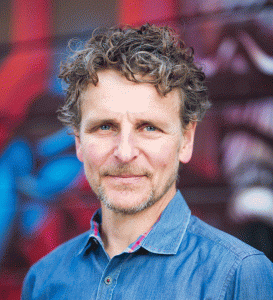
Tuck Professor and Strava Co-Founder Michael Horvath will give one of the Entrepreneurship Conference’s keynote addresses.
In addition to the keynote lectures, the conference is also stacked with nine different panels. Some will include general discussions on topics such as starting a business during your MBA program and financing your startup. Others are more specific, covering some of the hottest fields in entrepreneurship right now. Examples of these include “Blockchain: The Next Transformative Technology?” and “AI/ML: Artificial Intelligence in Diverse Contexts.” Finally, attendees will also get to take part in a venture capitalist meet-and-greet and a networking lunch and cocktail hour.
HBS is extremely supportive of entrepreneurship, according to Jim Aisner, the school’s director of media and public relations. He spoke at length about the myriad ways in which HBS is a fantastic place for both seasoned and budding entrepreneurs, underscoring the range of support Harvard’s large entrepreneurial community offers to those looking to start their own businesses.
“Entrepreneurship is a major component of life at HBS, with some 35 faculty members doing research, course development, mentoring/advising, and teaching in this area,” Aisner told Clear Admit.
Harvard’s program requires all first-year MBA students to take an entrepreneurship course, and there are also a large number of entrepreneurial-focused electives on offer in the second-year Elective Curriculum. In addition, the school boasts multiple conferences and events that reach programs outside the business school. “There is a whole ecosystem [at Harvard] promoting and nurturing entrepreneurship,” Aisner notes.
Significant Programming Supports HBS Student Entrepreneurs
HBS is also home to the Arthur Rock Center Accelerator, which helps selected teams develop their ventures over the course of the year. In addition, the Rock Accelerator offers summer fellowships to support students from the entire student body who seek to develop entrepreneurial ventures during the summer and hosts a semiannual conference that brings 100 alumni back to campus each year.
Rock Venture Partners is a program that lets small groups of students learn more about investing in startups by supporting Rock Accelerator teams as they go through pitching and starting their ventures. Then there is the Harvard Innovation Lab, or i-lab, a resource available to current students at any Harvard school interested in exploring innovation and entrepreneurship at any stage. “The Innovation Lab creates a hotbed of cross fertilization for teams from across the university,” says Aisner.
Given this supportive environment, it won’t come as a shock that many HBS students decide to start their own businesses rather than pursue a more traditional career path in their post-MBA life. Out of more than 900 students, eight percent of graduates from the Class of 2017 chose to start their own businesses upon graduation, up from six percent in the Class of 2016. Although this growth is indicative of a national trend toward more and more recent MBA grads founding startups, HBS outperforms many top schools in this regard. By comparison, at Chicago Booth just 3.2 percent of 2017 MBA grads went immediately into running their own startups. Meanwhile, at the University of Pennsylvania’s Wharton School, just 2.3 percent of the most recent graduating class founded businesses.
As another indicator of its commitment to fostering entrepreneurship, HBS will host its annual New Venture Competition on April 18th, which bestows more than $300,000 in prize money to outstanding new ventures. Contestants may apply in either the business track, with ventures that drive substantial market value, or the social enterprise track, with ventures that drive social change. This recent Clear Admit article noted that the social enterprise track received 69 entries this year, more than ever before.
Nationwide, more and more students have begun to pursue startups at all stages of their MBA careers. From this weekend’s student-led Entrepreneurship Conference to the wide range of related centers, faculty, and other support, HBS’s investment in nurturing its entrepreneurial students is clear.

